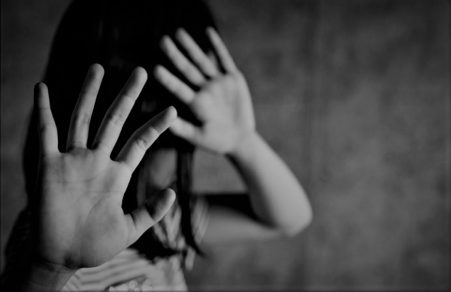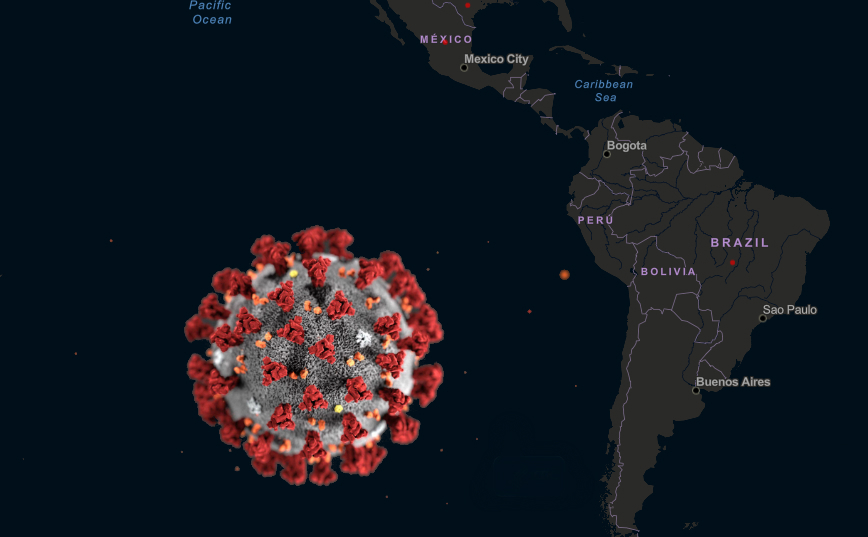According to official figures from the National Civil Police (PNC), one rape every seven hours has been recorded on average by El Salvador between March 1 and May 29 of the current year. During this period, 330 violations were reported to the police forces, a period that coincides with the strict national quarantine imposed by the Government of Nayib Bukele.
Despite the unfortunate figure, which is still alarming, the comparison made by Salvadoran police forces is that there was a decrease of 182 cases compared to the same period in 2019, when 512 cases were registered.
In this regard, Ana Graciela Sagastume, national coordinator of Women and Vulnerable Populations of the Attorney General of the Republic of El Salvador (FGR), recently explained that the decrease in this indicator is not due to a decrease in gender violence, but rather to “the restriction of movement measures” that are imposed by the collective quarantine.
Sagastume explains that the number of rapes does not indicate that this total recorded by the Police is the true one, since the same quarantine adds impediments for victims to report sexual assaults to the authorities.
«I would lean to the fact that the decrease is quite linked to the limitation of displacement (due to the national emergency), because many institutions have started an advertising campaign, but attention or aid is one thing and not formal complaints», said the prosecutor.
In fact, the prosecutor’s theory is also accompanied by the Police, who in their report added that, before the home quarantine, from January 1 to February 29, they received 360 reports of sexual violations, a figure that represented at that time an increase of 10 cases compared to 2019.
In other words, from January 1 to May 29, 2020, a total of 690 cases of rape have been officially reported.
«In Check» system of care for rape victims
For Silvia Juárez, from the Organization of Salvadoran Women for Peace (ORMUSA), the pandemic has put the healthcare system for victims of sexual rape «in check», since they force the person to file a complaint, in most cases , in person, to activate the corresponding crime investigation protocol.
“Noting that we had no possibility of offering remote assistance, therefore assistance (to victims) and complaints have decreased. Mobilization, schedules, fear and response conditions are obstacles that become more acute in the emergency”, said Juárez, who heads the program for a life free of violence for women at ORMUSA.
The prosecutor Sagastume, in addition, detailed that most of the Police data has been captured in ‘flagrante delicto’ and that of all the cases of sexual violence, between 70% and 80% of the victims know their aggressor.
She added that another impediment for children, adolescents and women when they want to make the complaint of a case of sexual violence is the possible contagion by COVID-19 when attending a health unit and complying with the respective protocol for collecting evidence.
“There is a health protocol that applies when it just happened (a rape), or within 72 hours. The health system is collapsed due to the pandemic and they are treating serious or chronic illnesses and, in addition to that, a victim of sexual violence who arrives (to the health center) could be exposed to contracting the virus within hospital facilities», added the prosecutor.
Of all the victims of sexual violence, according to Ima Guirola of Cemujer, 10% are men. «There is no specialized approach, either for women or men, and 8 out of 10 victims are in their adolescence or childhood», said the representative of Cemujer.
The reported data of sexual rape at the hands of the PNC and the FGR mostly coincide, since the police corporation forwards the files to the Prosecutor’s Office and vice versa, declared Sagastume.
There is no ‘single register’ and there is under-registration
During the quarantine, the Prosecutor’s Office has received 503 complaints – between March 21 and June 1. These complaints are classified as «sexual violence», and include the crimes of rape, assault and sexual harassment; which in total add 1,936 complaints since January 1, 2020, a figure that represents a drop of 612 cases compared to 2019.
«This is a rather complicated cascade effect, beyond whether they do want to (file the complaint) in person, or not, it is due to (the restrictions on) the possibility of movement and the stigma that they do not want them to know that they have been victims of sexual violence», reiterated the Prosecutor.
Juárez, furthermore, advised that any decision taken by the Security authorities and that deal with victims of sexual violence, especially for children, adolescents and women, should be from a “differential perspective” to overcome the obstacles they face at the time of file a complaint during mandatory confinement, «a plan in emergency situations such as the one contemplated in article 22 of the LEIV (Ley Especial Integral para una Vida Libre de Violencia para las Mujeres – Special Comprehensive Law for a Life Free of Violence for Women), which foresees how to respond to situations of this nature».
At the moment, according to the representative of ORMUSA, the Government is developing public information campaigns, but none is focused on making it known that women’s care services are not interrupted.
Sagastume added that in crimes related to sexual violence “there is so much under-registration of cases that are not brought to the attention of the Police or the Prosecutor’s Office because of a cultural issue for women, children and adolescents; they are ashamed to say they have been sexually raped because they are socially stigmatized”.
Guirola agreed, and explained that there is data that does not come to light; because although minors sometimes report it, sexual violations in adults go unnoticed.
“Society’s reaction to the context of a family party where a girl is raped is not the same as a woman or a man being raped. The behavior of society is totally different, its even different from the authorities”, said Guirola.
Meanwhile, the Minister of Justice and Public Security, Rogelio Rivas, has defended the idea and political propaganda that ensures that during the first year of Bukele’s term, sexual violations had decreased 20%, a false statement if underreporting of complaints of rape is taken into account.
Femicide protests and real numbers
Different organizations that defend women’s rights protested via Twitter against the femicides registered in El Salvador in recent months and demand from the central government real statistics on this social problem.
The protest took place virtually due to the pandemic and various non-governmental and feminist entities participated in it, using the hashtags #NosotrasTenemosOtrosDatosSV and #NiUnaMenos.
The activity, called on Twitter, because Salvadorans still cannot go out into the streets due to the quarantine decreed by COVID-19, took place after the Security Minister informed President Bukele that femicides supposedly decreased 61%, in a country considered one of the most violent for women.
«So women are 61% safer in this government than they were in the previous government», Bukele boasted after the figure was released.
The president, noted for executing repressive and dictatorial practices during his term, also noted that organizations that say that violence against women has increased in this government «do not defend women, but the FMLN (the Farabundo Martí Front for National Liberation )”, political party that ruled in the two previous periods (2009-2014) (2014-2019).
«They are trying to confuse the population with the results», said Minister Rivas.
For its part, the Salvadoran Network of Human Rights Defenders rejected Bukele’s comments, considering that they “delegitimize and stigmatize women’s and feminist organizations, which for years have worked to eradicate all forms of violence against women in El Salvador».
More women die from rape than from COVID-19
According to information from ONUMujeres El Salvador, in the Central American country more women are dying from violence than by COVID-19, since the number of femicides, as of May 29, exceeded the figure by more than 50% of women who died of the coronavirus.
ORMUSA data indicates that from March 17 to June 2, 2020, 26 femicides have been registered and 10 of them have been executed during quarantine.
According to PNC figures, between January 1 and May 4 of this year there have been 44 violent deaths of women. El Salvador is considered by Amnesty International (AI) as one of the most dangerous countries in the world for women.
El Salvador tops the list of femicides in America with a percentage of 6.8 murders per 100,000 women, according to the Economic Commission for Latin America and the Caribbean (ECLAC) and the United Nations.













